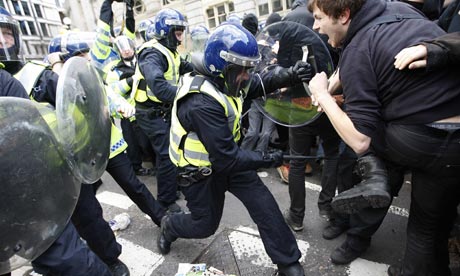 The Pittsburgh Post-Gazette is launching a subscription-only, value-added web presence at midnight tonight.
The Pittsburgh Post-Gazette is launching a subscription-only, value-added web presence at midnight tonight.PG+ will not replace post-gazette.com, which will continue to offer the same breaking news, features and multimedia content as always. Rather, it will allow subscribers access to a new stream of exclusive blogs, videos, live chats and behind-the-scenes insights into the news of the day.
The new site, hosted by a team of PG bloggers, will emphasize user interaction, with commenting throughout the site. Members also will be able to create a social networking profile to keep the conversation going.
The content will be provided by some of the Post-Gazette's best-known personalities, including Ed Bouchette, Mackenzie Carpenter, Doug Oster, Gene Collier, Reg Henry and Jack Kelly.
What's Conventional Wisdom on Pay-for-Web-News?

The conventional wisdom consists of three words, three words which are even scarier than "starring Ben Affleck": Doomed to Fail. Rupert Murdoch keeps threatening to move his news content ("news content", seems like "cheese product" - its kind of cheese, but..) beyond a pay-wall. I notice that he hasn't found the right situation to actually do that, yet.
 The New York Times experimented with this in their Times Select product. They moved their best content - the editorial writers, the blogs, reader comments - behind the paywall. Here's some of the talent: Thomas Friedman, Nicholas Kristof, Bob Herbert, Paul Krugman. Total web eyeballs plummeted. Web ad revenue dropped. The subscriptions were not sufficient to justify the overall loss of web advertising. The NY Times was unable to make this work. (I really liked the Times Select product. My friend Mark bought a subscription. About a dozen of us used it.)
The New York Times experimented with this in their Times Select product. They moved their best content - the editorial writers, the blogs, reader comments - behind the paywall. Here's some of the talent: Thomas Friedman, Nicholas Kristof, Bob Herbert, Paul Krugman. Total web eyeballs plummeted. Web ad revenue dropped. The subscriptions were not sufficient to justify the overall loss of web advertising. The NY Times was unable to make this work. (I really liked the Times Select product. My friend Mark bought a subscription. About a dozen of us used it.)So, on the face of it, the Post Gazette appears to be betting that (1) they're smarter than Rupert Murdoch, (2) they're more webby than the NY Times, and that (3) Friedman, Kristof, Herbert and Krugman pale in comparison to Bouchette, Carpenter, Oster, Collier, Henry and Kelly. None of those propositions is true.

Let's Refute Conventional Wisdom
The P-G may get away with this, or at least get a one-year bounce out of it. In the current newspaper era, a one-year bounce isn't a bad thing, especially if you're trying to package the paper for a sale.What does the PG have to lose?
If the PostGazette really does keep all it's present content free, and only puts additional, value-added content behind the pay-wall, they don't have much to lose. Normal web traffic should remain the same. If the incremental web traffic for PG+ is insufficient to pay the incremental salaries (which I bet is truly a relatively small amount), then there's not a lot of risk in this experiment; they can shut it down easily enough.What will subscribers get?
Subscribers will get blogs, opinion, and social media - comments and discussion with other subscribers. This seems like a sure attraction for office workers that can't listen to talk radio at work, but have a web connection. That can't be too many people.Timing is everything
Will the national attention on Pittsburgh for the G-20 bring a lot of subscribers? (Hint: Yinz can just read PghComet and Nullspace n'at.) Will the national focus on "the Pittsburgh Miracle" cause people from around the country to want to read what's going on? Will the Burgh's national sports visibility (football and hockey champions, and the Washington Wild Things) bring a desirable cachet?A PG+ Formula: Hyperlocal + Diaspora + Geezer 2.0
How could PG+ succeed? I think a winning formula would require a financial committment to establishing hyperlocal news, subscription from the Diaspora, and bringing Geezers into Pittsburgh social media. Hyperlocal news has been profitable by subscription. Hyperlocal news would, for instance, give us a news feed down to the specific neighborhoods. Instead of carrying Pittsburgh news and identifying it by neighborhood, "hyperlocal news" would have a blogger and a forum specifically covering Lincoln-Lemington-Belmar - and every other neighborhood. Perhaps you could configure your PG+ page to cover the neighborhoods that you live in, and the areas you and your spouse work in. In a city with such diverse and well-established neighborhoods, a hyperlocal news approach might succeed.
Hyperlocal news has been profitable by subscription. Hyperlocal news would, for instance, give us a news feed down to the specific neighborhoods. Instead of carrying Pittsburgh news and identifying it by neighborhood, "hyperlocal news" would have a blogger and a forum specifically covering Lincoln-Lemington-Belmar - and every other neighborhood. Perhaps you could configure your PG+ page to cover the neighborhoods that you live in, and the areas you and your spouse work in. In a city with such diverse and well-established neighborhoods, a hyperlocal news approach might succeed. Will the Diaspora Subscribe?
If the Pittsburgh Diaspora (the legions who have left {for work, mostly} but still consider themselves Black and Gold) subscribe, this could be a successful adventure for the P-G. Just look at the list of Steelers' bars around the country.
Geezer 2.0
AOL was successful (for a decade) because it brought the web and webbish things to non-geeks. Your Aunt Mary could surf AOL and do email. The Geezer Demographic (which looks a lot like Pittsburgh) isn't tweeting, and they aren't into Facebook. If PG+ can bring "social-media-light" to the Geezers, they may have another profitable niche.So, we'll see. Snarky prediction: Absence of a "two-day pass", like Salon uses, will keep people from buying something they cannot see; expect to see a "free look" option in 45 days. Unless they pursue the options above (hyperlocal, diaspora, geezer 2.0) this will struggle for eighteen months and then go away. Pundits will start referring to the "free" Post Gazette website as PG-Minus.
I wish them luck and success. They're not "too big to fail", but success of a local newspaper is important.
Click here for other Post Gazette Plus posts.






 Ramos talks about how our models are usually based on one-on-one interactions of simply defined objects (the Arab world, the finance community) that resemble Newtonian
Ramos talks about how our models are usually based on one-on-one interactions of simply defined objects (the Arab world, the finance community) that resemble Newtonian  It seems like it could be a too-theoretical discussion, but there's a lot of interesting perspectives. He talks about the fall of Russia with
It seems like it could be a too-theoretical discussion, but there's a lot of interesting perspectives. He talks about the fall of Russia with 

 Essentially, Anarchy (an-archy) is a system of no-rulers, of individuals living on terms they define. Anarchism is the belief that people can organize themselves without having someone tell them what to do. Anarchists believe that it is better for everyone to have a direct say, instead of having leaders or bosses make decisions for them. Anarchists also believe that participation (in society, in government, in an economy) should never be compulsory. (
Essentially, Anarchy (an-archy) is a system of no-rulers, of individuals living on terms they define. Anarchism is the belief that people can organize themselves without having someone tell them what to do. Anarchists believe that it is better for everyone to have a direct say, instead of having leaders or bosses make decisions for them. Anarchists also believe that participation (in society, in government, in an economy) should never be compulsory. (


 According to Washington State University neuroscientist Jaak Panksepp, the act of Searching stimulates the lateral hypothalamus with the neurotransmitter dopamine. The dopamine circuits "promote states of eagerness and directed purpose," Panksepp writes. It feels so good that we seek out activities, or substances, that keep this system aroused— cocaine and amphetamines are particularly effective at stirring it. Apparently, so is Google.
According to Washington State University neuroscientist Jaak Panksepp, the act of Searching stimulates the lateral hypothalamus with the neurotransmitter dopamine. The dopamine circuits "promote states of eagerness and directed purpose," Panksepp writes. It feels so good that we seek out activities, or substances, that keep this system aroused— cocaine and amphetamines are particularly effective at stirring it. Apparently, so is Google. Unfortunately, with our laptops and multi-tabbed browsers, our Seeking may not be inhibited and we may continue in an endless loop of Searching. All our devices — e-mail, Facebook, texts, Twitters — are feeding our Dopamine appetite and destroying the Search/Find symmetry. We hear "you've got mail" and we salivate like Pavlov's dog. No wonder we call it a "CrackBerry".
Unfortunately, with our laptops and multi-tabbed browsers, our Seeking may not be inhibited and we may continue in an endless loop of Searching. All our devices — e-mail, Facebook, texts, Twitters — are feeding our Dopamine appetite and destroying the Search/Find symmetry. We hear "you've got mail" and we salivate like Pavlov's dog. No wonder we call it a "CrackBerry".
 Here's a partial / early listing of announced G20 closures:
Here's a partial / early listing of announced G20 closures:






 I think the irony meter is probably pegged. Pittsburgh is spreading canvas over
I think the irony meter is probably pegged. Pittsburgh is spreading canvas over 











